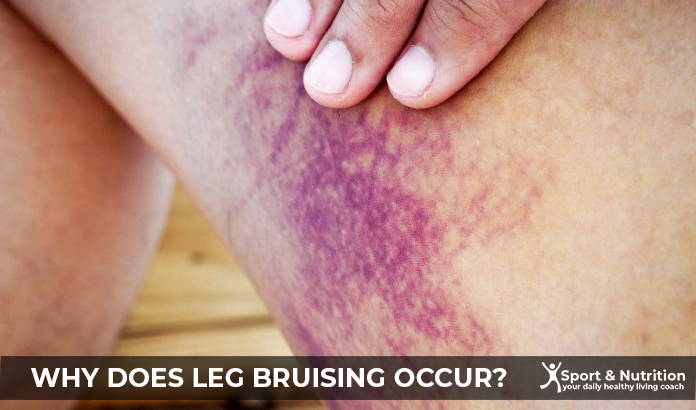Leg bruising is a condition we encounter in our daily life, but we usually do not dwell on it too much. However, understanding the causes of leg bruising is important for our health. The question “Why does leg bruising occur?” is therefore important. We will explain the possible causes of leg bruising and when you should seek medical help.
Sudden Injuries and Leg Bruising
One of the most common answers to the question “Why does leg bruising occur?” is physical injuries. Blows to the legs usually cause bruising. This happens due to damage to the blood vessels and leakage of blood into the surrounding tissue. This situation usually heals within a few days or weeks. However, if there are symptoms such as pain, swelling, and restricted movement in the affected area, it is important to seek medical help. Also, depending on the severity of the blow, more serious complications can develop. Therefore, it is important to pay attention to any kind of bruise or blow that affects your daily life.
Inflamed or Damaged Blood Vessels
Another common cause of leg bruising is inflamed or damaged blood vessels. This is often associated with conditions like varicose veins or deep vein thrombosis (DVT). In these cases, blood circulation weakens, and bruising can occur. It usually comes with symptoms like pain, swelling, increased heat, and color changes in the skin. If you notice such symptoms, it would be beneficial to consult a health professional. Inflamed or damaged blood vessels, if not intervened in time, can lead to more serious health problems. Therefore, it is important to consult a health professional immediately in such cases.
Blood Clotting Disorders
A rarer but serious cause of leg bruising is blood clotting disorders. Conditions like hemophilia and von Willebrand disease can prevent the body from properly healing even minor injuries, leading to bruises. These conditions are usually genetic, and if a person has one of these conditions, bruising can often occur. Medical help is required in such a situation. The diagnosis of these diseases is usually done with genetic tests and blood tests. Early diagnosis and appropriate treatment are very important in the management of these diseases.
Aging and Leg Bruising
As we age, our skin and blood vessels become more sensitive. This often causes more frequent leg bruising in older people. Aging can lead to bruising by causing the blood vessels under the skin to tear more easily. However, during the aging process, sudden or frequently recurring bruises on the legs can also be a symptom of a serious health problem. Therefore, it would be beneficial to consult a health professional in any case. Aging causes many changes in our body, and these changes can affect our health. Therefore, it is important to pay attention to the changes in your body during the aging process and to have regular health checks.
Side Effects of Some Medications
Some medications, especially blood thinners and non-steroidal anti-inflammatory drugs (NSAIDs), can cause leg bruising. These drugs prevent blood from clotting more easily than normal, which can lead to bruising. The side effects of these medications usually improve when the medication is stopped or the dose is changed. However, it is important to consult a health professional in this situation as well. If leg bruising has occurred due to medication use and this is uncomfortable for you, you can find out whether your medication dose or type can be changed by talking to your doctor.
When Should You See a Doctor?
If the cause of your leg bruising is unclear, especially if it is accompanied by other symptoms (such as pain, swelling, warmth), it is important to consult a health professional. This could be a symptom of a serious condition, and early diagnosis can make treatment more effective. Medical help should also be sought in cases of a bruise that does not go away for a long time, expands or hurts; swelling or hardness in an area of the leg along with bruises; and/or pain or discomfort when moving a leg or an area of the leg.
Ways to Protect Yourself
Now that you know the answers to the question “Why does leg bruising occur?“, we should also talk about what you can do to protect yourself. Methods of protecting yourself usually depend on the cause of your bruising. However, in general, taking safety precautions at home to reduce the risk of falling; using appropriate protective equipment while playing sports or engaging in physical activities; having a healthy diet and regular exercise; and reviewing your medications with your doctor when necessary are important.
Conclusion
In conclusion, the question “Why does leg bruising occur?” is often a question that does not have a simple answer. The cause of the bruising may not always be clear and should always be evaluated by a health professional. Prioritize your own health and always consult an expert in the face of uncertainties. Remember, health professionals are the most accurate and reliable source for any concerns and questions about health.





